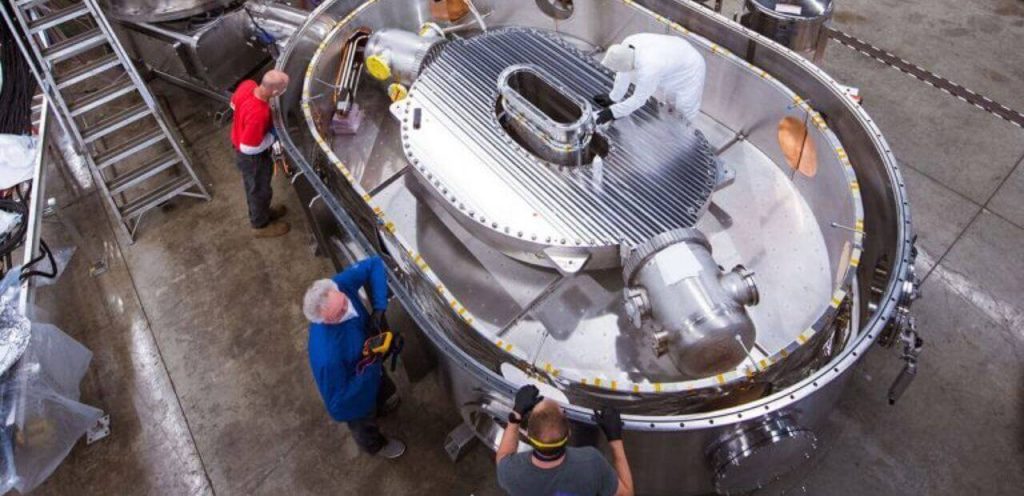The Diploma in Paramedical Course in Bangladesh equips students with essential medical skills. It spans 2-3 years and fosters proficient healthcare technicians.
Pursuing a paramedical diploma in Bangladesh opens doors to a career in the health sector as a crucial support professional. The curriculum bridges the gap between doctors and patients by training skilled workers in areas such as medical lab technology, radiography, and physiotherapy.
Bangladeshi institutions offering this program aim to create a workforce adept at handling clinical tasks and equipment. Graduates play a vital role in healthcare teams, making a real impact on patient care and treatment outcomes. As the demand for trained paramedical professionals rises, this diploma ensures a blend of practical knowledge and theoretical foundations, preparing students for immediate employment in hospitals, clinics, and various health departments.
Introduction To Paramedical Education In Bangladesh
Bangladesh is swiftly expanding its paramedical education. The country realizes the urgent need for skilled healthcare technicians.
The Rise Of Paramedics
Bangladesh sees a surge in paramedical personnel demand. The courses empower youths with life-saving skills. They transform diligent students into paramedic professionals. Jobs in this sector are on the rise. Employment prospects appear promising across urban and rural areas. Paramedical courses include:- Diploma in Medical Technology
- Diploma in Laboratory Services
- Diploma in Radiography and Imaging
Relevance In The Healthcare System
Paramedics stand beside doctors and nurses. Their presence is vital in treatments. They operate medical instruments. A steady hand is needed to support diverse medical procedures. Each paramedic is a crucial healthcare system link.| Course | Duration | Career Role |
|---|---|---|
| Diploma in Medical Technology | 3 Years | Medical Technician |
| Diploma in Laboratory Services | 3 Years | Laboratory Technician |
| Diploma in Radiography and Imaging | 3 Years | Radiographer |
Anatomy Of A Diploma In Paramedical Course
Core Components
The Diploma in Paramedical Course is designed to equip students with the necessary skills and knowledge. Below are the key elements:- Medical Fundamentals: Basic concepts of human biology and disease.
- Clinical Skills: Hands-on patient care and emergency response techniques.
- Diagnostic Testing: Use of medical equipment for diagnosis.
- Pharmacology: Study of drugs and their effects.
- Healthcare Ethics: Understanding patient rights and confidentiality.
Duration And Structure
The diploma typically spans over a period of 2 to 3 years. Below is an overview of the structure:| Year | Focus Area | Key Components |
|---|---|---|
| 1st Year | Basic Sciences | Human Anatomy, Physiology, and Pathology. |
| 2nd Year | Applied Sciences | Medical Lab Techniques and Imaging Technology. |
| 3rd Year | Specialization & Internship | Field-specific skills and real-world experience. |
Eligibility Criteria For Aspiring Students
Academic Requirements
Entering the world of paramedicine starts with fulfilling academic criteria:- Completion of Secondary School Certificate (SSC): A minimum Grade Point Average (GPA) usually applies.
- Higher Secondary Certificate (HSC): This must be in a science background, with a specified GPA.
Age And Other Prerequisites
Prospective paramedics need to meet age and health standards:| Criteria | Details |
|---|---|
| Age Limit | Usually, students must be within a certain age range. |
| Physical Fitness | A health checkup may be required to ensure fitness for the demands of the role. |
| Motivation | A passion for helping others and a strong desire to work in healthcare is critical. |

Credit: www.msmunify.com
Navigating The Admission Process
Application Steps
To secure your spot, you must follow these simple steps:- Gather Necessary Documents: These may include your academic certificates, national ID, and passport-sized photos.
- Fill Out the Application Form: Complete every required field with accurate information.
- Submit the Form: You can do this online or through the institution’s admission office.
- Pay the Application Fee: This can be done through banks or online payment systems associated with the institution.
- Check Your Email: Institutions often send confirmations or further instructions via email.
Selection Criteria
The selection of candidates is based on the following:- Academic Performance: Your grades in relevant subjects matter.
- Entrance Exam: Some institutions might require you to pass an entrance test.
- Interview: Be ready for an interview round where your passion for healthcare is often assessed.
- Medical Checkup: A fitness test to ensure you can handle the physical demands of the job.
| Criteria | Details |
|---|---|
| Academic Records | Your past schooling grades are evaluated. |
| Entrance Exam | A written test assesses your knowledge base. |
| Interview | Your commitment and motivation are discussed. |
| Medical Test | A physical fitness check ensures you are up for the role. |
A Glance At Top Paramedical Institutes
Reputation And Rankings
When selecting a paramedical institute, its reputation speaks volumes. Top institutes stand out for their exceptional track record. They nurture skilled professionals. These institutes often feature in national rankings, highlighting their quality of education and graduate success rates. Each boasts an alumni network comprising well-placed healthcare professionals.Facilities And Infrastructure
State-of-the-art facilities are a hallmark of leading paramedical institutes. They provide students with modern classrooms, well-equipped labs, and hands-on training equipment. This enables a robust learning environment. Libraries are stocked with the latest medical journals and books. Institutes ensure hostel accommodation is comfortable and secure. Sports and recreational areas are also available for a well-rounded student life.- Laboratories: Equipped with latest medical devices
- Lecture Halls: Integrated with modern teaching aids
- Libraries: Rich collection of paramedical literature
- Hostels: Safe and conducive living spaces
- Recreation: Facilities for sports and leisure

Credit: m.facebook.com
Curriculum And Specializations
Subjects Covered
The core curriculum of the Paramedical Diploma includes several subjects. These subjects form the foundation of paramedical science. Students learn through classroom instruction and hands-on experience. Here is a list of subjects generally covered in the course:- Anatomy – Study of human body structure
- Physiology – Understanding how the human body functions
- Pathology – Study of diseases and their effects
- Microbiology – Learning about microorganisms and their impact on health
- Pharmacology – Knowledge of drugs and their administration
- First Aid – Essential life-saving procedures and emergency care
- Medical Ethics – Understanding the ethical aspects of healthcare
Choosing A Specialization
After grasping the basics, students can focus on a specialization. Specializations cater to different aspects of healthcare. They allow students to develop niche skills. Choices of specialization may vary depending on the institute. Below is a table representing various specializations offered:| Specialization | Skills Gained |
|---|---|
| Medical Laboratory Technology | Conducting tests, analyzing samples |
| Radiology and Imaging | Operating imaging devices, interpreting results |
| Dental Technology | Assisting in dental procedures, managing dental equipment |
| Operation Theatre Technology | Assisting in surgeries, managing operation theatres |
Practical Training: Bridging Theory And Practice
Hands-on Experience In Clinics
The heart of paramedical training lies in the ability to apply classroom lessons to live environments. Students gain hands-on experience in clinics, participating in procedures and using medical equipment. They engage in following tasks:- Assisting in patient diagnosis
- Operating medical machinery
- Learning patient care
Importance Of Internships
Internships offer a glimpse into the day-to-day roles of healthcare professionals. They play a vital role in education, as they:| Enhance Skills | Build Confidence | Establish Connections |
|---|---|---|
| Practical application of theoretical knowledge | Real patient interaction | Networking with professionals |
Skill Development Through The Course
Technical Proficiencies
The curriculum lays a strong foundation in medical knowledge and procedure execution. It focuses on nurturing adept technicians in various medical fields.- Anatomy and Physiology: Students understand human body systems in-depth.
- Diagnostic Testing: Learners master conducting and interpreting medical tests.
- Medical Equipment Handling: Trainees get hands-on experience with advanced tools.
Soft Skills For Patient Care
Alongside technical skills, students improve patient communication and empathy. These skills are crucial for high-quality patient care.- Communication Skills: Effective dialogue with patients and teams.
- Problem Solving: Crafting solutions for unexpected challenges.
- Teamwork: Collaborating for the best patient outcomes.
Assessment And Evaluation Methods
Paramedical courses in Bangladesh use diverse methods for assessing students. These ensure competency and skill in aspiring professionals. Below, we delve into the two core pillars of assessment in these programs: examinations and continuous skills assessment.
Examinations And Testing
Objective examinations form a core part of the evaluation process. Multiple-choice questions (MCQs), short answer questions (SAQs), and structured practical exams (SPEs) ascertain a student’s theoretical understanding and practical skills.
- MCQs: Test broad knowledge in a time-efficient manner.
- SAQs: Assess depth of understanding on specific topics.
- SPEs: Evaluate practical skills in real-world scenarios.
Rigorous performance review follows exams. This ensures accurate grading and feedback.
Continuous Skills Assessment
Hands-on learning is pivotal in paramedical training. Continuous assessment occurs in labs and clinics. Clinical rotations offer real-life experience. Instructors assess students on the go. Skills logbooks record each student’s progress.
| Assessment Type | Details | Frequency |
|---|---|---|
| Ongoing Practical Evaluations | Direct feedback during procedures | Regular |
| Logbook Reviews | Track and verify skills development | Weekly/Monthly |
| Peer Reviews | Encourage collaborative learning | As needed |
Licensing And Certification
National Regulatory Bodies
In Bangladesh, National Regulatory Bodies oversee paramedical professionals. These entities set the standards for practice and education. They also evaluate applicants. The Directorate General of Health Services (DGHS) plays a key role. It ensures all paramedical staff meet specific qualifications.Earning The License To Practice
To Earn the License to Practice, graduates must complete several steps:- Education: Finish a recognized Diploma in Paramedical course.
- Exam: Pass a comprehensive licensing examination.
- Registration: Register with a reputable national health council.
Career Paths And Progression
Job Roles After Gradulation
Graduates step into the healthcare world ready to serve and flourish. With a diploma in hand, they can assume various roles:- Emergency Medical Technician (EMT): Providing crucial pre-hospital care
- Medical Laboratory Technician: Conducting essential tests and analyses
- Radiology Technician: Specializing in imaging services like X-rays
- Operation Theatre Technician: Assisting in surgical procedures
- Dialysis Technician: Operating dialysis machinery for patients
Growth And Advancement Opportunities
Career growth in the paramedical field is not only possible, but it’s also encouraged. Diploma holders can look forward to:- Enhancing skills through on-the-job training and specialized courses.
- Pursuing higher education for advancement.
- Gaining experience to move into supervisory roles.
- Becoming part of research teams to contribute to medical advancements.
Understanding The Job Market
Demand For Paramedical Professionals
The healthcare realm is witnessing a rapid surge in the need for paramedical professionals. Bangladesh, with its growing population, requires a robust support system for doctors and nurses. This creates a myriad of opportunities for those with a Diploma in Paramedical courses. They are the unsung heroes who ensure efficient patient care and aid in critical medical procedures.- High demand in rural and urban healthcare facilities
- Essential for emergency services
- Requirement across multi-specialty hospitals
- Opportunities in diagnostic labs and research facilities
Employment Sectors
After completing a Diploma in Paramedical course, various employment sectors open up. Each of these offers unique roles where professionals can apply their skills.| Sector | Roles |
|---|---|
| Hospitals | Technician, Assistant, Therapist |
| Clinics | Health Advisor, Pathology Technician |
| Government Health Services | Public Health Worker, Medical Officer Assistant |
| Private Practices | Diagnostic Specialist, Clinical Coordinator |
| Educational Institutes | Trainer, Research Assistant |
Salary Expectations And Benefits
Starting Salaries
As fresh diploma holders in the paramedical field, the starting salaries can vary. Entry-level positions typically offer modest pay. But remember, gaining experience is key. Initial earnings reflect the beginning of a journey, not its end.| Type of Employer | Average Starting Salary |
|---|---|
| Government Hospitals | 15,000 – 20,000 BDT |
| Private Clinics | 12,000 – 18,000 BDT |
| NGOs | 10,000 – 15,000 BDT |
Long-term Financial Prospects
Over time, with experience, specialization, and continued education, salaries can rise significantly. Skilled professionals are highly valued in the medical field. The table below provides a glimpse of what seasoned experts can earn.- Increased Earnings: With 5+ years of experience, professionals can expect to double their starting salary.
- Specialization Benefits: Gaining expertise in specific fields often translates to higher pay.
- Leadership Roles: Advancing into managerial positions can lead to substantial salary increments.
Impact Of Paramedics In Rural Healthcare
The rural areas of Bangladesh face significant healthcare challenges. Shortage of healthcare providers and lack of facilities are common. Trained paramedics are crucial in these regions. They bridge the gap between remote communities and essential medical services. With their skills from diploma courses, they save lives and improve the overall health scenario.
Improving Access In Remote Areas
Paramedics reach places where doctors are scarce. They carry out preventive care, treatment, and even emergency services. Mobile clinics and health camps ensure that nobody is left without care. This direct approach to healthcare provision is altering the landscape of rural health in Bangladesh.
- Conducts health screenings
- Administers vaccines
- Offers prenatal and postnatal care
- Handles basic emergency situations
Case Studies And Success Stories
| Case | Paramedic Initiative | Outcome |
|---|---|---|
| Village A | Monthly health camps | Decreased infant mortality |
| Village B | Training in first aid | Improved emergency response |
| Village C | Mobile clinic services | Higher treatment rates |
Personal stories add credibility to data highlighting the impact. A community taught to use oral rehydration saved many from cholera. A woman saved by a paramedic-trained neighbor inspires enrollees. Every tale is a testament to the diploma in paramedical courses’ worth.
Challenges In The Field
Dealing With Emergency Situations
Emergency scenarios are unpredictable and intense. Paramedics must think fast and act accurately.- Managing critical timelines is crucial.
- Staying composed under pressure is mandatory.
- Providing immediate, life-saving interventions is their prime duty.
Navigating The Healthcare Environment
The healthcare environment is complex and ever-evolving. Paramedics must continually adapt.- Understanding the latest medical protocols requires constant learning.
- Coordinating with doctors and nurses necessitates effective communication.
- Ensuring patient safety and care amidst resource constraints poses a challenge.
Continuing Education And Training
Advanced Courses
Advanced courses enhance knowledge in specialized areas of healthcare. These programs often include:- Cardiac Care Technology
- Dialysis Technology
- Operation Theater Technology
Workshops And Seminars
Workshops and seminars play a critical role in offering hands-on experience and real-time knowledge sharing. Attendees benefit from:- Interactive sessions with experts
- Exposure to the latest medical equipment
- Networking with peers
The Role Of Technology In Paramedical Services
Innovations In Medical Equipment
New medical devices mean quicker diagnoses and better treatment. In Bangladesh’s diploma courses, students learn to use these tools. Let’s look at some key innovations:- Portable Monitors: Carry vital sign monitoring anywhere.
- Digital Stethoscopes: Clearer body sounds for accurate analysis.
- Automated External Defibrillators (AEDs): Non-professionals can save lives in cardiac cases.
Telemedicine And Remote Care
Paramedical students get skilled in telehealth. This means treating patients far away. They use internet tools to check symptoms and advise on care.| Technology Benefit | Impact on Service |
|---|---|
| Virtual Consultations | Immediate medical advice from a distance. |
| Remote Monitoring | Doctors track health status in real-time. |
| Electronic Health Records | Accurate patient data ready at a click. |
International Opportunities And Recognition
Working Abroad
A diploma in paramedical sciences from Bangladesh can be the first step towards an international career. Graduates can work in numerous countries. They can join hospitals, clinics, and emergency services. Many graduates find jobs in the Middle East, Europe, and Southeast Asia. Employers value their expertise.- Explore diverse healthcare systems
- Understand international medical protocols
- Build a career in global health service
Global Certifications
Global certifications enhance job prospects. Graduates can opt for additional international exams. Qualifying these exams can increase their demand.| Certification | Advantages |
|---|---|
| BLS/ACLS | Opens jobs in critical care and emergency |
| CMA | Positions in management and administrative roles |
| PALS | Opportunities in pediatric care units |
Networking And Professional Associations
Joining Professional Bodies
Paramedical professionals benefit greatly from joining registered associations. These platforms offer updates on latest industry trends, continuous education programs, and exclusive job listings. Members can attend workshops, webinars and conferences to boost their skills.- Professional recognition
- Access to resources
- Networking events
- Career development opportunities
Engaging In Community Service
Community engagement shapes well-rounded paramedics. Volunteering in health campaigns and local clinics builds practical experience. It showcases commitment to public health and social responsibility.- Nurture empathy and teamwork
- Gain real-world expertise
- Strengthen your resume
- Make a positive impact
Preparing For The Future
The Evolving Healthcare Landscape
The healthcare domain is transforming daily. With advances in technology, treatments become more sophisticated. Bangladesh now sees a surge in demand for skilled paramedics. Students must grasp these advancements to stay relevant in their field. Prospects for growth in this region are immense for those with the right knowledge and skills.| Advancement | Impact on Healthcare |
|---|---|
| Telemedicine | Increases need for remote patient monitoring skills |
| Electronic Health Records (EHRs) | Requires proficiency in digital documentation and data management |
| Medical Imaging | Demands understanding of complex imaging software |
Continued Learning And Adaptability
Continual education is key for paramedics who wish to excel. New health crises such as the COVID-19 pandemic show the need for adaptability. Paramedical courses must instill a mindset geared toward learning and flexibility. Only through continuous improvement can practitioners provide the best patient care. Students should expect to engage in:- Ongoing skill development workshops
- Refresher courses on medical advancements
- Training on the latest medical equipment
- Participation in seminars and webinars for broader knowledge

Credit: www.msmunify.com
Frequently Asked Questions For Diploma In Paramedical Course In Bangladesh
Which Is The Best Paramedical Diploma Course?
The best paramedical diploma course often depends on an individual’s career goals and interests. Common top-rated options include Emergency Medical Technician (EMT), Operation Theatre Technology, and Medical Laboratory Technology.
Is Paramedical A Diploma Or Degree?
Paramedical courses are available as both diploma and degree programs. The choice between diploma or degree depends on the institution and course duration.
Which Paramedical Diploma Has Highest Salary?
The Diploma in Anesthesia Technology often yields the highest salary among paramedical diplomas, due to its specialized skills and high demand in healthcare settings.
Which Is The Best Course Among Paramedical Courses?
The best paramedical course varies based on individual career goals and interests. Research and consider factors like job scope, salary potential, and program duration to choose the right course for your aspirations.
What Is A Diploma In Paramedical?
A Diploma in Paramedical is a vocational course that trains students to become allied healthcare workers, supporting medical professionals in different specialties.
Conclusion
Exploring a diploma in paramedical courses within Bangladesh opens numerous doors to healthcare careers. This certification equips students with vital medical skills, preparing them for a fulfilling journey in patient care. Graduates emerge ready to meet the nation’s growing health service demands.
Aspiring to join the medical field? Consider this path for a rewarding future.









